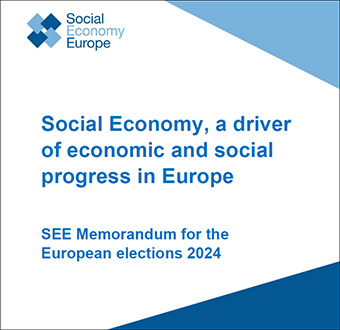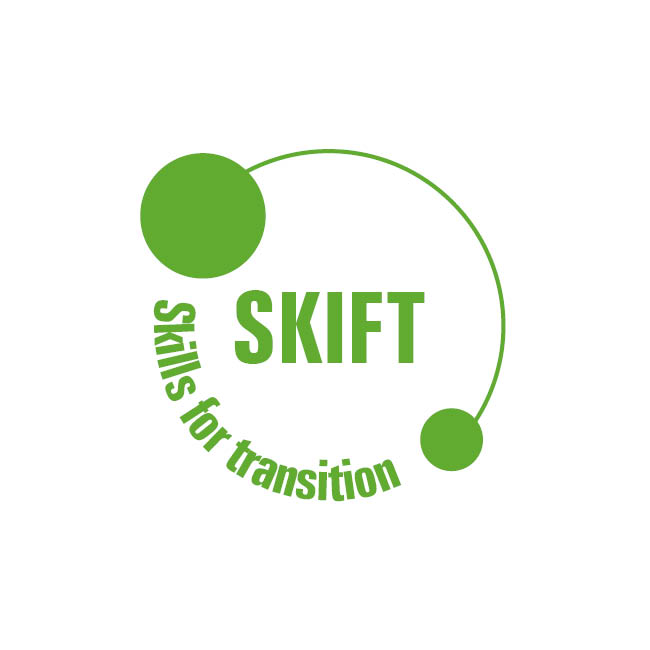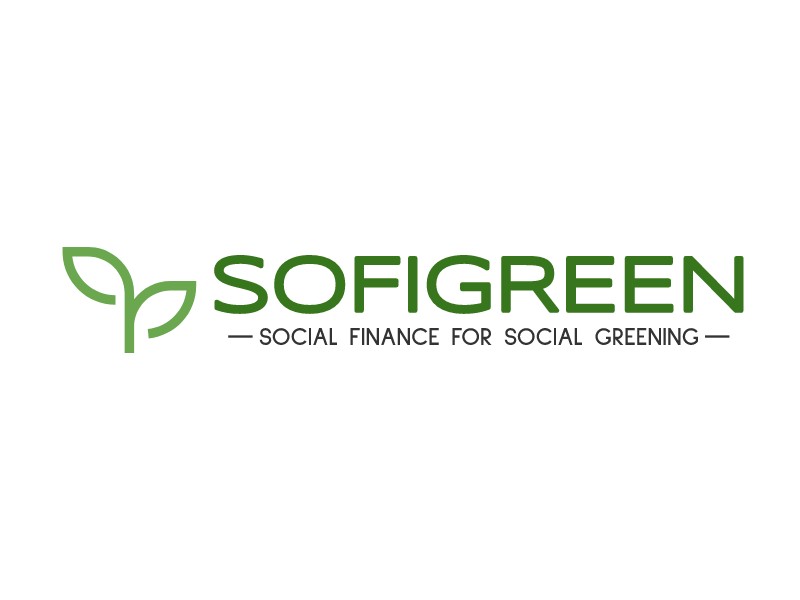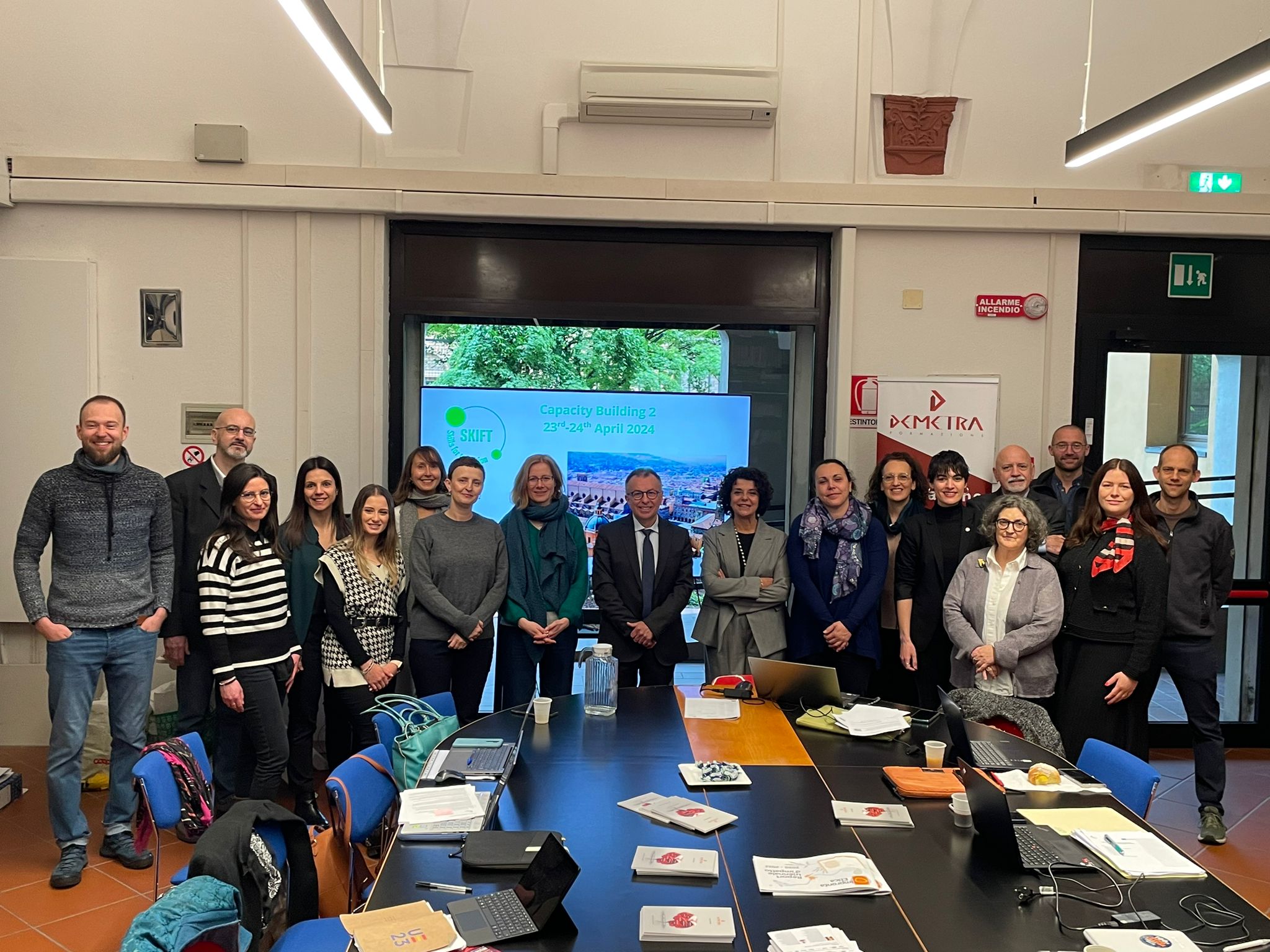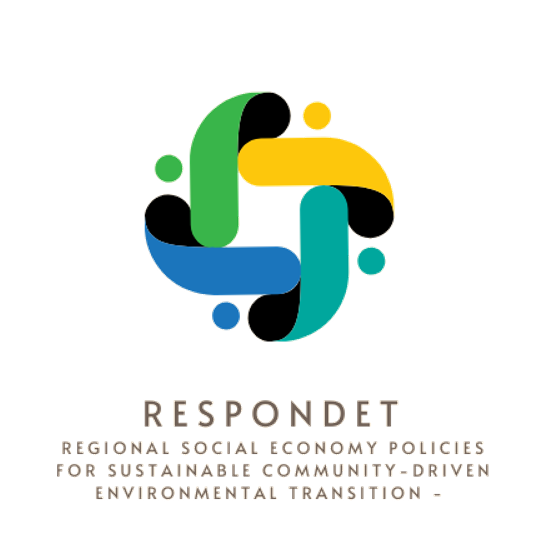
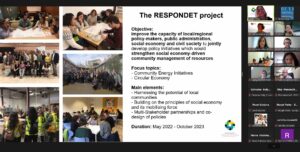
RESPONDET Final Webinar: Working on Perspectives and Recommendations
Regions and cities, social economy organisations, civil society and academics from 10 EU Member States came together on 14 September 2023 for the final webinar of the RESPONDET project.
During the webinar, RESPONDET partner regions/city presented the local actions plans for green transition they had finalised in summer.
Moreover, the RESPONDET consortium and other participants took the occasion to discuss final recommendations for policy-makers at different level with regard to the strengthening of social economy-based circular economy initiatives, on one hand, and community energy initiatives, on the other. They were joined by representatives of different European Commission Directorate General, the European Committee of the Regions, European social economy networks and other European projects.
Among the points raised were, for example:
– possibilities to counteract greenwashing and make citizens more aware of the concept and added value of the social economy also in green transition processes: here, participants highlighted amongst other points the potential of social green procurement (combining social and ecological criteria), the importance of campaigns and events, but also the need to bring the social economy model more strongly into education and training focusing on green transition;
– the need to enhance skills linked to social and green transition in social economy enterprises and organisations, whilst at the same time recognising and enhancing the role of the social economy as providers of skills linked, for example, to processes of participatory management, community involvement, work integration of disadvantaged persons and a related innovation capacity, etc.; or
– possibilities to involve the most disadvantaged groups into initiatives such as community energy initiatives: interesting examples here were provided by Kata Tüttö (Deputy Mayor of Budapest and Vice-Chair of the CoR ENVE Committee) who referred to a pilot project around the renovation of buildings in which her city – in cooperation with the city districts – is actively seeking direct contact to disadvantaged persons&families; or by an Italian social economy organisation which developed a specific algorhythm aiming to re-distribute public subsidies for an energy community in favour of the most disadvantaged.
Local/regional action plans finalised

In the end of August 2023 RESPONDET partner regions and cities finalised their local action plans for green transition which they presented during the RESPONDET final webinar on 14 September 2023.
Focus areas of the plans are the social economy-based circular economy and/or community energy initiatives.
The plans were conceived on the basis of several elements:
Transnational exchange: Important input for the plans was generated by four transnational “mission workshops” (Barcelona, Namur, Krakow, Turin) and a European Policy Lab (Gothenburg) which provided an opportunity to exchange on existing legal and policy frameworks, good and bad practice as well as challenges and their possible solutions. Partners had decided to specifically focus on two themes related to green and social transition: community energy initiatives and circular economy. Both were discussed in a dedicated workshop. The third and fourth mission workshop provided the opportunity to deepen related ‘transversal’ topics, namely “Capacity-building” and “New forms of cooperation and governance”.
Methodological guidance: Partners jointly elaborated a guiding matrix for the development of the local action plans and the related co-construction process with local stakeholders.
Participatory Co-design process at local level: For the whole duration of the project and the design of the local action plans, RESPONDET partners regions/city have been working in close cooperation with local/regional social economy organisations, civil society, universities and other partners. This included context analysis, the creation of a joint vision, definition of the potential at local level and experiences from elsewhere, the identification of actions to be taken, etc. Three social economy organisations were official project partners. Other actors were involved through local meetings, local events, webinars and surveys. Several local stakeholders also had the opportunity to take part in the transnational missions and the European Policy Lab.
All local action plans have been written in the language of the respective partner region/city. A short summary in English can be found at the end of each document.
Take a look at the plans HERE.
RESPONDET European Policy Lab in Gothenburg




RESPONDET partners used the occasion of the presence of local/regional and European policy-makers, social economy actors, academics and civil society to organize a European Policy Lab in the framework of the European conference “Social Economy 2023 – Building a stronger and resilient Europe” and linked to the REVES General Assembly. The event took place on 8 and 9 June 2023 in Gothenburg (SE).
The Lab was organized in two parts: The afternoon session of 8 June focused on circular economy, the morning session of 9 June on community energy initiatives.
More than 40 participants took part in the event – they represented local and regional authorities, social economy organisations and enterprises, European organisations, European institutions and consultative bodies (such as the CoR, EESC), etc.
During the event, RESPONDET partner regions/city, their social economy partners and other cities and regions shared the experiences they made whilst drafting – in a participatory way – local action plans promoting the role of the social economy in green transition.
Participants then discussed possible solutions to challenges RESPONDET partners have come across in this process or that they perceive for the implementation of planned actions.
Among the challenges raised were for example the following:
How to better access data and share information also within a public authority?
How to increase and deepen citizen participation and citizen ownership of the different initiatives?
How to balance a transversal approach within local governments and administration, expert knowledge and citizen ownership?
Final observations and remarks by a panel including EU policy-makers such as Brigitte Fellahi-Brognaux (Head of Unit at European Commission, DG EMPL), Anna Athanasopoulou (Head of Unit at European Commission, DG Grow) or Ricardo Rio (Member of the Committee of the Regions) as well as local/regional politicians rounded off the discussions.
Other news

Community energy initiatives on the agenda of the European Week of Regions and Cities
For the 21st time regions and cities from all over Europe will come together in Brussels from 9-12 October 2023 during the “European Week of Cities and Regions”.
Among the six priority themes this year is also the “local energy shift for security and sustainability”.
A number of workshops will provide participants with the opportunity to learn more also about community energy initiatives such as renewable energy communities, related practices in European cities and regions, financial support of different kind or (European) initiatives fostering capacity-building and skills development.
Other events will further explore circular economy-related policies.
Also, in a dedicated session on the “Social Economy Gateway” the European Commission will offer a closer insight into the new European one-stop shop for social economy.
More information: https://europa.eu/regions-and-cities/

European Commission: Transition Pathway for Proximity and Social Economy – Call for Pledges still open!
As part of the co-implementation process of the Transition Pathway for Proximity and Social Economy, the European Commission encourages, collects, promotes and supports public and private stakeholder commitments for concrete actions to move towards the green and digital transition of the ecosystem.
The European Commission addressed stakeholders through a call for pledges on ‘proximity and social economy’ published on 14 November 2022.
The next deadline to submit your pledge through the call is 1 December 2023. Previous cut-off dates were 28 February and 1 July 2023.
The call for pledges will remain open during the entire implementation of the transition pathway. See a presentation on why and how to make a pledge as well as an overview of all 14 action areas and 30 actions from the info session on 26 January 2023.
For more information: https://single-market-economy.ec.europa.eu/sectors/proximity-and-social-economy/transition-pathway_en

Committee of the Regions: Green Deal Going Local Handbook
The European Green Deal will be won or lost in EU cities and regions. Given that local and regional authorities (LRAs) are responsible for delivering the EU Green Deal on the ground, it is crucial to provide them with the necessary tools and resources.
To this end, the European Committee of the Regions has published a Handbook that provides tailored advice to LRAs on financial aid and technical assistance in the areas of climate adaptation, biodiversity and renovation of buildings.
Designed to be both informative and interactive, the Handbook provides step-by-step guidance on targeted financial and technical instruments. Additionally, it features best practices that showcase how the EU Green Deal goals can be implemented by local and regional policymakers.
Click HERE to discover the Green Deal Going Local Handbook!
![]()
Views and opinions expressed in this newsletter are those of the author(s) only and do not necessarily reflect those of the European Union or EISMEA. Neither the European Union nor EISMEA can be held responsible for them.
Read More
European Elections: Help us mobilising (future) MEPs to keep social economy on the EU policy agenda
The European elections are approaching. Their outcome will decide on the direction the EU will…
REVES Annual Meeting 2024: Focus on inter-cooperation between different (social economy) actors and municipalities
REVES Annual Meeting 2024: Focus on inter-cooperation between different (social economy) actors and municipalities REVES…
OPEN CALL: POSSIBILITY FOR MICRO&SMALL SE ENTERPRISES TO RECEIVE FREE ADVISE AND COACHING ON GREEN TRANSITION-RELATED TOPICS
The SKI.F.T call for proposals is now open! Micro and small social economy enterprises…
GREENING OPPORTUNITY FOR SEEs
the SOFIGREEN call for proposal for SEEs operating in France, Italy and Spain is now…
 Docs
Docs  Support
Support 

